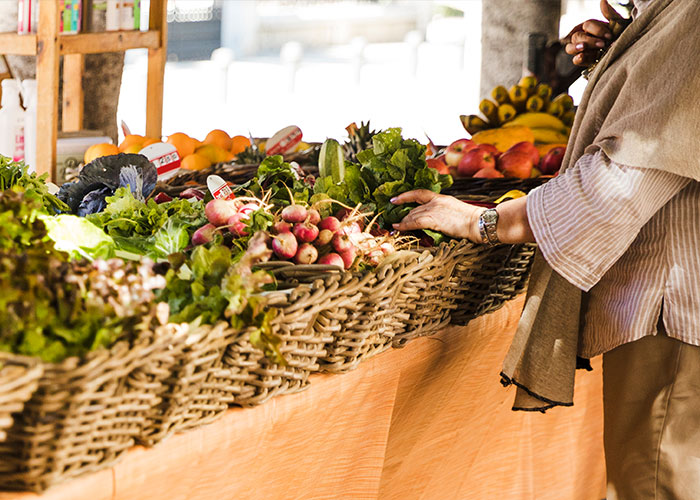People Keep Stealing From My Garden Thanks to a Neighbor’s “Free Farm Stand”—I’m Done

In this deeply relatable post, the original poster (OP) finds themselves at odds with both their neighbors and local opportunists over a surprisingly contentious issue: garden theft. Their next-door neighbor has set up a community farm stand, inviting people to take or donate produce and pantry items freely. In principle, it’s a heartwarming gesture—until OP’s personal vegetable garden becomes mistaken (or deliberately treated) as part of the public buffet. Despite attempts to deter intruders with fencing, tarps, and signs, people continue to trespass and steal food meant for OP’s family. A confrontation escalates to the point where OP uses a hose on a repeat offender and now finds themselves labeled the “angry garden guy” of the neighborhood.
The conflict spirals when the neighbor refuses to move the stand or implement any meaningful changes, framing OP’s complaints as selfish or uncharitable. Yet OP insists this isn’t about generosity—it’s about property, respect, and the basic right to grow food for one’s own household without it being looted under the guise of community spirit.
Advertisement – Continue Reading Below
At first, this guy thought his neighbor’s free farm stand to feed the needy was a brilliant idea

Advertisement – Continue Reading Below
But when people started raiding his own vegetable garden, everything changed

Advertisement – Continue Reading Below

Advertisement – Continue Reading Below

Advertisement – Continue Reading Below

Advertisement – Continue Reading Below

Advertisement – Continue Reading Below

Advertisement – Continue Reading Below

Advertisement – Continue Reading Below

Advertisement – Continue Reading Below

Advertisement – Continue Reading Below

Advertisement – Continue Reading Below

Advertisement – Continue Reading Below

Advertisement – Continue Reading Below

Advertisement – Continue Reading Below

Advertisement – Continue Reading Below

Advertisement – Continue Reading Below
Property Rights, Urban Agriculture, and the Ethics of “Community Sharing”
At the heart of this story lies a tension between private property rights and informal community initiatives—particularly in urban and suburban areas where land is shared but boundaries are often poorly respected. In U.S. law, even modest front-yard gardens are protected under trespassing statutes. Unauthorized entry onto someone’s property to harvest crops constitutes theft and criminal trespassing, regardless of the item’s perceived value. The notion of “just a few tomatoes” doesn’t hold up legally, as the intent and action matter more than the dollar amount.

Advertisement – Continue Reading Below
Urban agriculture—especially in the U.S.—has surged as food prices rise and people look for more sustainable ways to feed their families. According to a report by the Johns Hopkins Center for a Livable Future, community gardens and food-sharing projects must operate within the bounds of “consensual sharing.” When boundaries blur, either through visual proximity or confusing signage, theft becomes more common—and enforcement becomes difficult, especially in low-policing areas.
Community resources like farm stands or “free fridges” can thrive, but they require careful planning. Many successful ones are monitored by volunteer groups, clearly separated from private property, and employ brightly colored signage and directional barriers. Without these guardrails, neighbors can unintentionally (or intentionally) create a “commons effect,” where people treat nearby goods as free for the taking, regardless of ownership.
The social pressure OP faces—being told they’re selfish or “not community-minded”—mirrors a common ethical fallacy: that public good always trumps private rights. But there’s a difference between being ungenerous and being unwilling to subsidize the negligence of others. As OP highlights, this is not about starvation or community uplift—it’s about individuals cherry-picking ripe produce for personal enjoyment, not need. Worse, it’s happening in a context where OP’s family is financially stretched, making every tomato and zucchini matter.

Advertisement – Continue Reading Below
In behavioral economics, the concept of “moral licensing” also plays a role: people who believe they’re doing something virtuous (like picking up food from a farm stand) may feel justified in doing something unethical (like stealing from a garden next door). Without clear consequences or boundaries, these behaviors spread quickly, especially in tightly packed neighborhoods where anonymity emboldens petty theft.
While the use of a hose might feel excessive to some, it arguably falls within the bounds of non-lethal property defense—a deterrent, not an attack. The more egregious breach may be the neighbor’s refusal to engage in reasonable compromise, such as moving the stand or installing clearer signage. That failure contributes directly to OP’s loss and rising frustration.
Advertisement – Continue Reading Below
Some felt sorry for the neighbor, others didn’t. Many provided advice

Advertisement – Continue Reading Below

Advertisement – Continue Reading Below

Advertisement – Continue Reading Below

Advertisement – Continue Reading Below

Advertisement – Continue Reading Below

Advertisement – Continue Reading Below

Advertisement – Continue Reading Below






